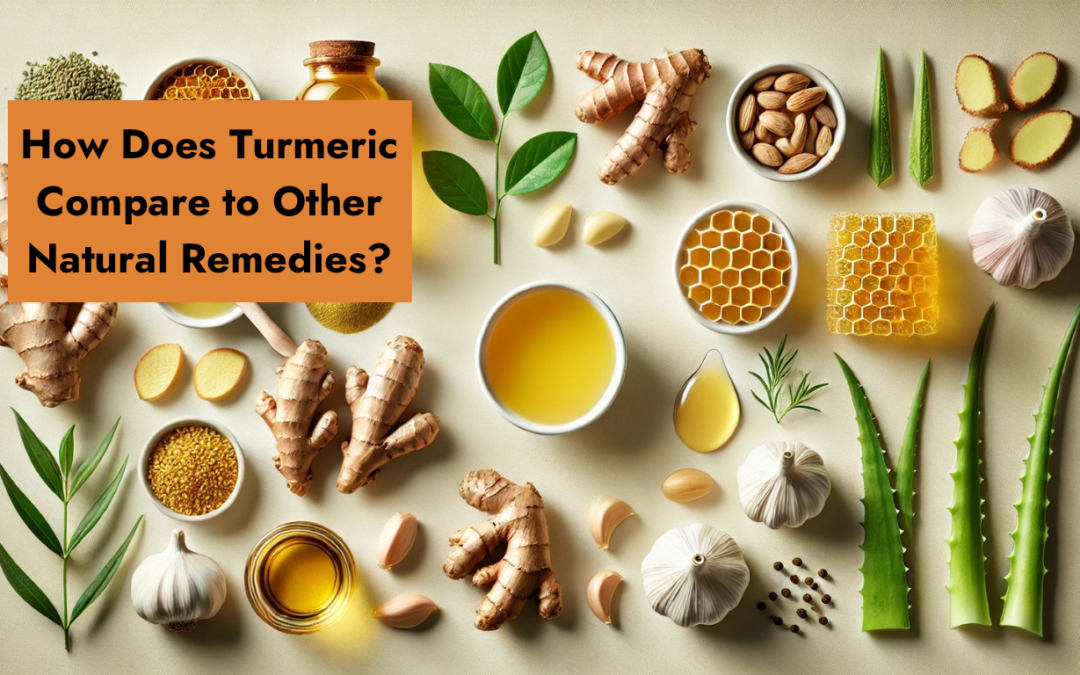In the world of natural remedies, few ingredients have garnered as much attention and respect as turmeric. Known for its vibrant yellow color and its star compound, curcumin, turmeric has been celebrated for centuries in traditional medicine systems like Ayurveda and Traditional Chinese Medicine (TCM).
But how does turmeric compare to other natural remedies?
Let’s explore its benefits, its competition, and where it truly stands in the realm of natural healing.
The Golden Root: What Makes Turmeric Special?
Turmeric (Curcuma longa) is a spice derived from the rhizome of a plant in the ginger family. Its primary active compound, curcumin, is responsible for most of its health benefits, including its anti-inflammatory, antioxidant, and antimicrobial properties.
The versatility of turmeric makes it a go-to remedy for a wide range of ailments, such as:
- Chronic Inflammation: Turmeric’s anti-inflammatory effects are comparable to over-the-counter drugs like ibuprofen, without the side effects.
- Joint Health: Regular use can reduce symptoms of arthritis and joint pain.
- Digestive Support: It aids digestion, alleviates bloating, and supports liver health.
- Cognitive Health: Emerging studies suggest turmeric may help improve memory and reduce the risk of neurodegenerative diseases like Alzheimer’s.
- Skin Care: Turmeric’s antimicrobial and anti-inflammatory properties make it a popular ingredient for acne, eczema, and other skin conditions.
However, turmeric isn’t a panacea. Its effectiveness often depends on dosage, bioavailability (which can be enhanced with black pepper), and individual health conditions.
Turmeric vs. Other Natural Remedies
1. Turmeric vs. Ginger
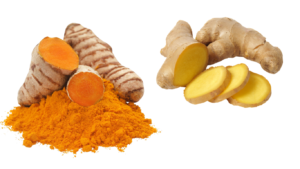
Similarities:
Both turmeric and ginger belong to the Zingiberaceae family and share anti-inflammatory and antioxidant properties. They are often used to treat digestive issues, reduce nausea, and combat inflammation.
Differences:
- Anti-Nausea Properties: Ginger is superior in alleviating nausea, especially during pregnancy, chemotherapy, or motion sickness.
- Inflammation: While both are effective, turmeric’s curcumin offers a more potent anti-inflammatory effect than gingerol, the active compound in ginger.
Verdict: If you’re targeting inflammation, turmeric is the stronger choice. For nausea and digestive issues, ginger takes the lead.
2. Turmeric vs. Garlic
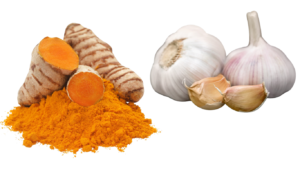
Similarities:
Both turmeric and garlic are celebrated for their antioxidant and antimicrobial properties. They are often used to boost immunity and combat infections.
Differences:
- Heart Health: Garlic is more effective in lowering blood pressure and cholesterol, thanks to its allicin content.
- Anti-Inflammatory: Turmeric outshines garlic in managing chronic inflammatory conditions like arthritis.
Verdict: For heart health and immunity, garlic has the edge. For systemic inflammation, turmeric is the better option.
Related Read: Is Turmeric Effective for Enhancing Immunity
3. Turmeric vs. Green Tea
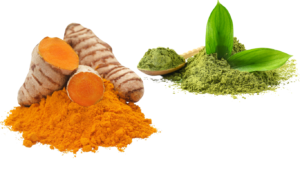
Similarities:
Turmeric and green tea are powerful antioxidants that fight oxidative stress, reduce inflammation, and support overall health.
Differences:
- Cognitive Health: Green tea contains L-theanine and caffeine, which improve focus and mental clarity in ways turmeric cannot.
- Anti-Cancer Properties: Both have anti-cancer potential, but the mechanisms differ. Turmeric inhibits cancer cell growth, while green tea catechins prevent the spread of cancer cells.
Verdict: Choose green tea for mental clarity and energy. Use turmeric for targeted anti-inflammatory and anti-cancer effects.
4. Turmeric vs. Honey
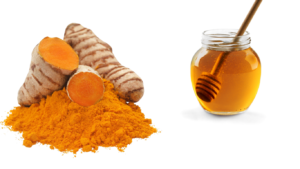
Similarities:
Both are antimicrobial and have been used in traditional medicine for wound healing, soothing sore throats, and boosting immunity.
Differences:
- Digestive Health: Honey is particularly effective in soothing ulcers and improving gut health.
- Inflammation: Turmeric provides broader anti-inflammatory benefits, especially for chronic conditions.
Verdict: For quick relief from a sore throat or wounds, honey is a winner. For systemic benefits, turmeric is unmatched.
5. Turmeric vs. Aloe Vera
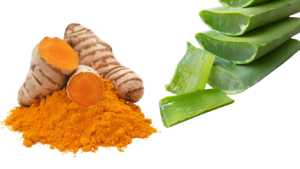
Similarities:
Both turmeric and aloe vera are used in skincare and digestive health. They reduce inflammation and promote healing.
Differences:
- Skin Care: Aloe vera is better for moisturizing and soothing burns, while turmeric is more effective against acne and dark spots.
- Internal Use: Aloe vera juice is often used as a laxative and for gut health, while turmeric targets systemic inflammation and oxidative stress.
Verdict: For topical skin care and digestive soothing, aloe vera is ideal. For internal inflammation and antioxidants, turmeric leads.
The Science of Synergy
What’s remarkable about turmeric is how well it pairs with other remedies. Combining turmeric with ingredients like black pepper (to enhance curcumin absorption), ginger (for added anti-inflammatory effects), or honey (for antimicrobial power) often amplifies its benefits. This synergy makes turmeric a cornerstone in holistic health practices.
Limitations of Turmeric
While turmeric boasts numerous benefits, it’s not without limitations:
- Bioavailability: Curcumin has low absorption rates in the body, which can limit its effectiveness unless combined with enhancers like black pepper.
- Allergies: Some individuals may experience allergic reactions or gastrointestinal discomfort.
- Drug Interactions: Turmeric can interact with blood-thinning medications and other drugs.
Moreover, turmeric’s effects are more preventive than curative, meaning it’s most effective when used consistently over time rather than as a quick fix.
How to Incorporate Turmeric into Your Routine
- Golden Milk: A blend of turmeric, milk (or plant-based alternatives), and spices like cinnamon is both delicious and health-boosting.
- Supplements: Capsules with added black pepper offer a convenient way to consume turmeric daily.
- Cooking: Add turmeric to curries, soups, or rice for a flavorful and healthful boost.
- DIY Masks: For glowing skin, mix turmeric with yogurt or honey and apply it as a face mask.
Related Read: How to Incorporate Turmeric in Your Daily Diet
Conclusion
Turmeric is undoubtedly a powerhouse in the world of natural remedies, offering a wide range of benefits, from reducing inflammation to boosting skin health. While it doesn’t outshine every natural remedy in every category, it holds its own as a versatile and synergistic ingredient.
Comparing turmeric to remedies like ginger, garlic, green tea, honey, and aloe vera reveals that each has unique strengths. The choice depends on your specific health needs, but combining turmeric with other remedies often yields the best results.
In the end, turmeric’s legacy as the “golden spice” is well-deserved, not because it’s a miracle cure, but because of its adaptability and synergy with other natural remedies. Whether you’re seeking to improve your skin, digestion, or overall wellness, turmeric is an invaluable ally in the journey to natural health.

